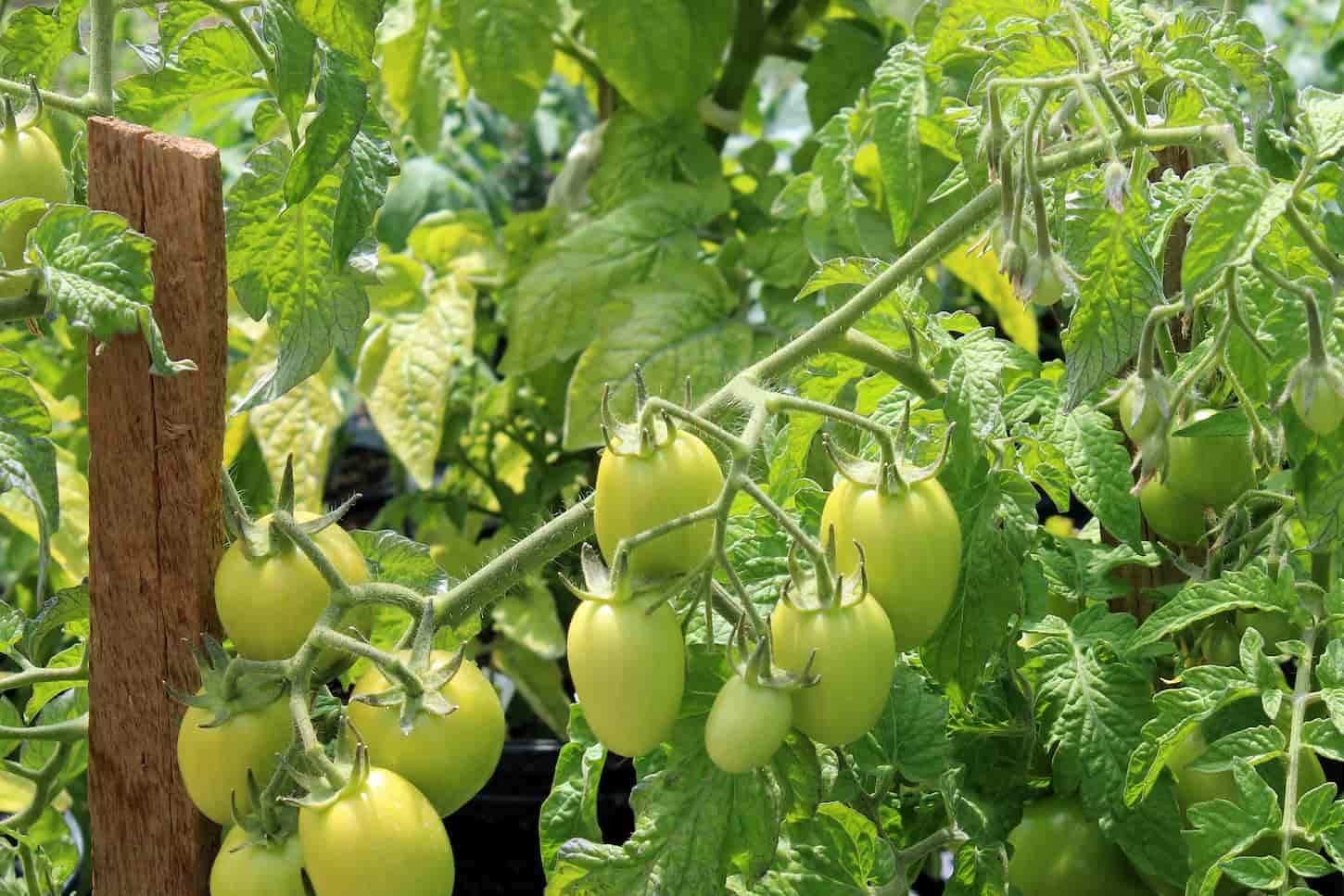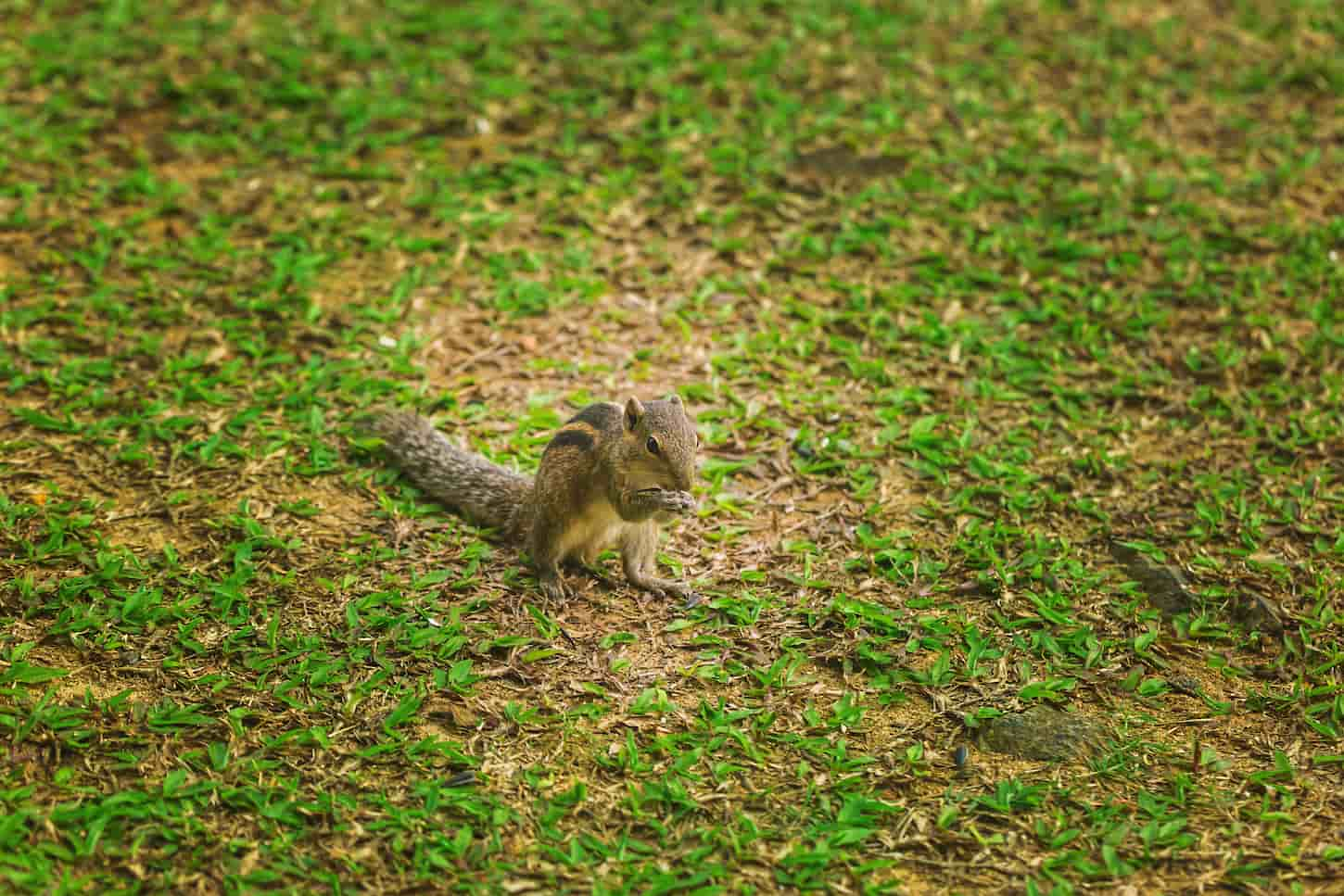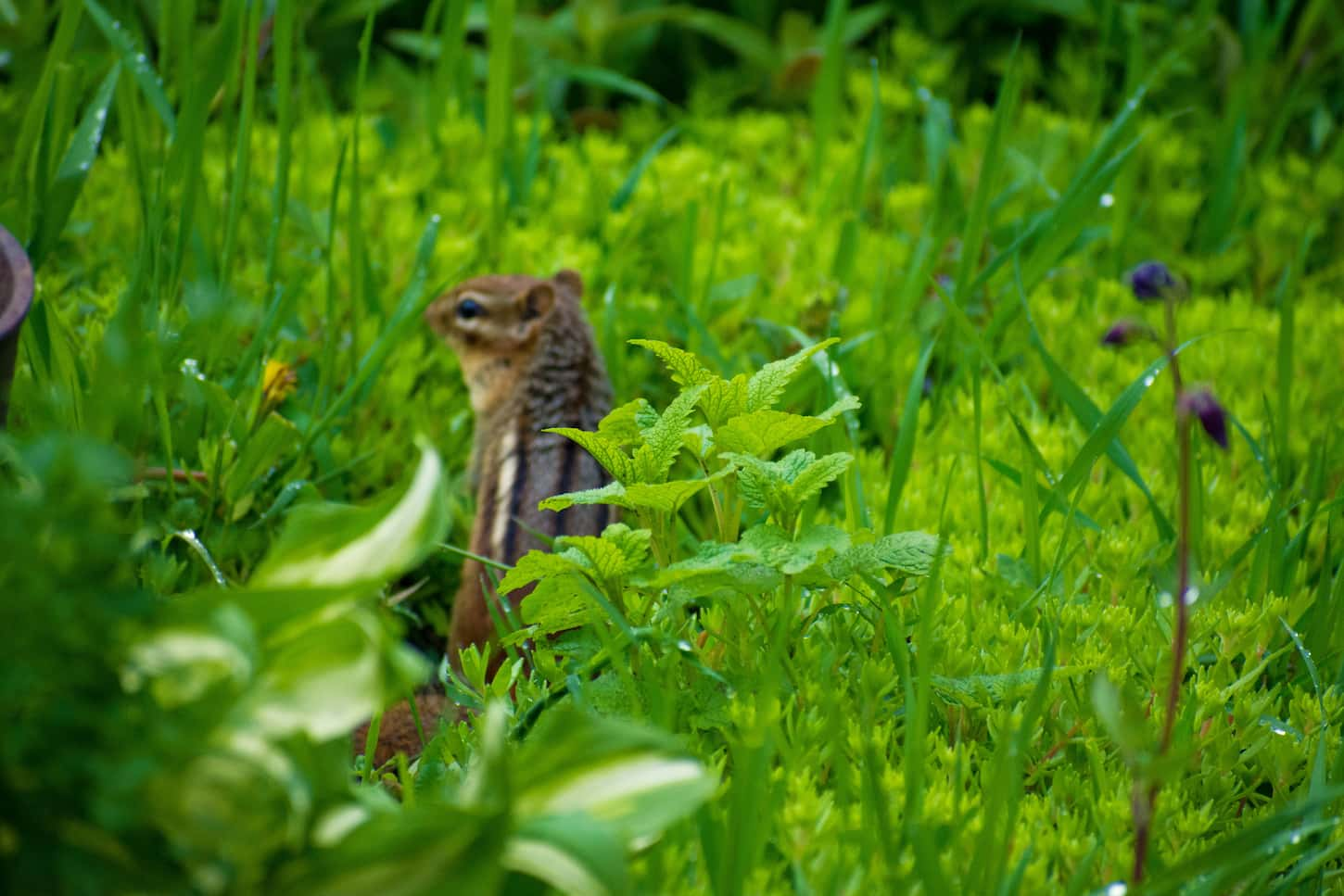If you’re noticing that someone other than yourself is tucking into your tomatoes before they’re even plucked from the vine it might be time to investigate. Usually, it’s my children or the chickens who get the produce, but sometimes I wonder if chipmunks and squirrels are eating my tomatoes.
Squirrels and chipmunks love to feast on tomatoes, and garden produce can be an easy target for these small critters. Squirrels and chipmunks can be difficult to control or deter, though things like fences and odor-based deterrents can help.
Squirrels and chipmunks have always been on the hunt for foods to fatten them up and store during cold winter months. Humans have kept track of their habits so we can keep them away from our harvest and have even invented various humane solutions to get rid of these pests. Even if some of them are dang cute.

Do Chipmunks Eat Green Tomatoes?
Chipmunks will eat green tomatoes and garden produce they can get to.
Whilst we humans like our tomatoes to be juicy, ripe, and red. Our mischievous fluffy friends aren’t so fussy. Green tomatoes are never off the menu for chipmunks.
They‘ll gladly tuck into your growing crop as soon as the fruits are forming. Green tomatoes may not taste so good, but they are still packed full of juice and nutrition. As such, chipmunks can totally enjoy a tomato at any stage.
Do Chipmunks Eat Cherry Tomatoes?
Chipmunks will also eat cherry tomatoes, green or fully ripened.
Cherry tomatoes are a popular choice for beginners and experts when growing produce at home. They’re quick and easy to start growing producing an ongoing fruit throughout the season. With a plentiful stock, chipmunks are happy to snack on cherry tomatoes.
These bite-sized treats are a delicious target for chipmunks, and they are keen to have a bite of each cherry tomato on the vine. If you’re noticing the familiar sound of chirping, fencing bite marks, or droppings around your comprised crop, this could be a sign of chipmunks.
Do Squirrels Eat Green Tomatoes?
Squirrels will eat green tomatoes and garden produce.
Squirrels are happy to eat plants and meat. While squirrels are known for their love of nuts they still need nutrients to round out their diets. Fruits such as tomatoes are a popular choice for squirrels and these cheeky critters are fussy about color.
Squirrels will happily dine from a tomato plant that is fruiting even if their meal is still green and not yet ripe.
Whilst ripe tomatoes offer the benefit of an energy boost due to their higher sugar content squirrels are keen to take advantage of any opportunity for a snack. A green tomato is still a tomato for these creatures.
Do Ground Squirrels Eat Tomatoes?
Ground squirrels will eat tomatoes and garden produce.
Ground squirrels are keen to snack on tomatoes just like others of their species. With tomatoes growing from the ground up, they make an excellent target for these low-lying rodents. Ground squirrels are notorious for digging around your garden defenses, and tomatoes as ever will remain a favorite to all members of the squirrel family.
Ground squirrels can easily be mistaken for their tree-dwelling cousins, though a key feature to keep an eye out for is the tail. Ground squirrels have shorter, less bushy tails. Ground squirrels tend to keep away from trees favoring burrows on the ground as their name suggests.

How to Keep Chipmunks Out of a Garden (or get rid of them humanely)
Chipmunks are very difficult to control, as they can squeeze through small spaces and can dig under fences not buried at least 6 inches deep to keep chipmunks out. Chipmunks may need to be relocated.
It is possible to get rid of chipmunks without causing them harm. With a bit of D.I.Y., you can build defenses to deter them or capture them and release them into a more appropriate setting away from your garden.
Chipmunks are small and agile; they often collect food from sheltered areas on the floor which keep them concealed from predators. If chipmunks cannot access food, then they are likely to leave your garden alone.
Building defenses at ground level is a great way to protect your plants, such as fences.
Build a rodent-proof fence:
- Dig a fence line around your tomato patch, at least 6-inches deep.
- Measure out your fencing material to fit your patch.
- Install support posts to hold the structure.
- Wrap fencing material around the support post and make sure it reaches the bottom of your trench.
- Pack the soil back into the ground.
- Sprinkle coffee grounds around the fenced area to deter pests.
For fencing material, you’ll need to use something small enough that the chipmunks can’t just mosey on through the center of it.
Chicken wire is a good place to start, though even that may be too big, depending on how skinny your chipmunks are.
You can also take advantage of humane chipmunk traps; these are designed to restrain the animal without causing it harm.
You can then safely transport them to another area where they can be released back into nature. Make sure that you are driving between 5-10 miles away to release the chipmunk so they can’t find their way back to your garden.
If you don’t want to drive that far, you can talk to your local animal control. They may help you with trapping and relocating any pesky animals, like our friendly rodents the squirrels, and chipmunks.
Peanut butter is a highly recommended bait for traps but it’s worth sacrificing one of your best tomatoes. Chipmunks love the sweet and juicy taste of tomatoes and peanut butter might not be enough of a temptation.
By offering chipmunks the food they’ve been trying to reach you will entice them into the trap and get them out of your garden quicker.
Another way you can control a chipmunk population is to have chickens. Chickens are known to catch and eat mice, so it’s not much of a stretch to imagine them being willing to catch and eat chipmunks.
There are two real downsides to this, though.
- The first is that the chipmunks don’t survive the encounter, even if it is part of the circle of life and all that.
- You must let your chickens into the garden, and they may go after the tomatoes, too.
Keep in mind that not all chickens will catch and eat chipmunks. If that’s the case, a barn cat is always an option.
How To Keep Squirrels out of the Garden (or get rid of squirrels humanely)
A great way to humanely get rid of squirrels from a garden is by making it an unappealing place for them to be. Trapping and relocating them is another option.
Squirrels have a keen sense of smell; this helps them find food stored months ago even in snowy conditions. Some smells squirrels can’t stand, spreading these scents across your garden will help keep them away and protect your plants.
Smells squirrels hate can include the following.
- Chilli
- Garlic
- White Vinegar
- Peppermint Oil
- Cinnamon
Infusing these scents into the water and spraying your plants and the area surrounding them will keep these rodents away. Using homemade remedies will keep your plant organic and isn’t damaging to the environment.
A great sense of smell isn’t a squirrel’s only excellent sense; those pointy ears make excellent radars for picking up sound.
We’ve all noticed squirrels darting away at the sound of humans approaching. Taking advantage of this sensitivity, gadgets have been invented that emit ultrasonic sounds based on movement.
Sensors pick up when a squirrel enters your garden and create a high-pitched sound to spook them. These sounds cannot be heard by human ears, so they won’t disrupt your day. Solar-powered devices are available for the energy-conscious gardener.
If you don’t mind letting the circle of life does its thing, barn cats are an option, too. I don’t think the squirrels want to get eaten, so how humane this option is could be up in the air for debate.
I know I mentioned earlier that chickens might help keep chipmunks under control, but squirrels are too big for chickens to swallow whole. So, the odds of a chicken being your squirrel patrol are pretty well zero.
If things get bad or you want to relocate the squirrels, traps and calling your local animal control are going to be your best next steps.

Next Steps
Chipmunks and squirrels will eat tomatoes if they are available to them. Fortunately, over time techniques for keeping them at bay have been developed.
If you’re not able to keep these critters out of your garden it’s worth taking on a defensive stance and using protective structures or rodent deterrents.
That way, you can enjoy your tomatoes guilt and rodent-free. Now that’s out of the way, let us answer another commonly-asked tomato question for you; go read this article next: Can Tomatoes Grow in Indirect Sunlight? The answer may surprise you!
